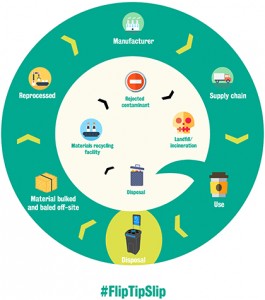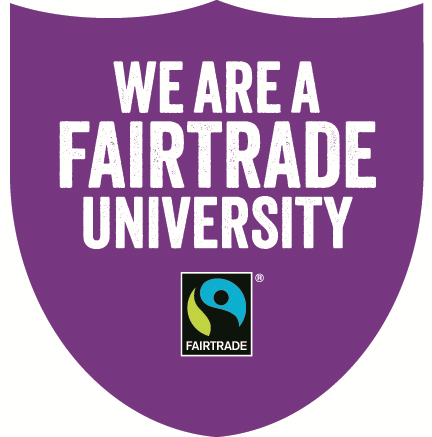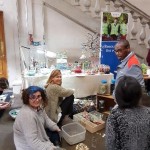Starting this September, King’s will recycle coffee cups across campuses through the Simply Cups scheme.
Coffee cups have been a hot topic this year. Ever since Hugh Fearnley-Whittingstall revealed that “doing the right thing” by putting our empty coffee cups in the mixed recycling bin might not be so good after all, there have been campaigns to tackle the problem.
Disposable coffee cups are mainly made from paper. To stop them from leaking, the inside of the cups is covered in a thin plastic (polyethylene) film – and it is this plastic film that creates problems when it comes to recycling the cups. Paper mills can’t separate the plastic film from the paper, which means that millions of coffee cups placed in standard mixed recycling bins actually end up in incineration or landfill.
However, there are some specialist facilities where disposable coffee cups are given a second life if they are collected separately. Simply Cups does this through two different ways:
- Coffee cups are shredded, and the material is mixed with other recycled plastics to create new products – which can be anything from pens to park benches.
- Fibre from coffee cups is recovered by pulping them with ambient temperature water – due to the difference in density between paper fibres and the plastic film, the plastic will float at the top and is removed. You can read more about this process here.
As a member of Simply Cups, we will now be able to recycle all disposable coffee cups. To recycle your cup, simply look out for the special coffee cup recycling bins across campuses. Once you have found your nearest bin, “#FlipTipSip” – Flip the plastic lid off the cup and place it in mixed recycling, tip any remaining liquid into the designated liquids part of the bin, and slip the empty cup into the collection tube.
The coffee cup recycling bins are initially being rolled out at:
- Strand Campus, including Bush House, the Maughan Library and Virginia Woolf Building
- James Clerk Maxwell Building (Waterloo Campus)
- Guy’s Campus
- Denmark Hill Campus
If you are based at Strand, you might already be familiar with the scheme. The Maughan Library is taking part in the Square Mile Challenge, a campaign to recycle 5 million coffee cups in the City of London by the end of 2017. After exceeding its April target of 500,000 cups, the campaign has recycled more than 1.2 million cups by the end of July. Manchester had a similar campaign earlier in the year – with coffee cups now returning as bird feeders, plant pot holders and chalk boards.
King’s is working to increase its recycling rate to 70%. Combined with other initiatives, such as the introduction of food waste segregation from all canteens and the improved recycling guidance online and on bin posters, we hope the new coffee cup recycling scheme will help us achieve this ambitious target.
Want to avoid disposable coffee cups altogether, and save money in the process? Use a reusable cup! King’s Food offer branded Keep Cups at their venues. You get a free drink when you buy a KeepCup, and a 10p discount every time you use it. And lots of other companies are doing it too – Starbucks, Pret and lots of independent coffee shops will also give you a discount if you bring your own cup!



